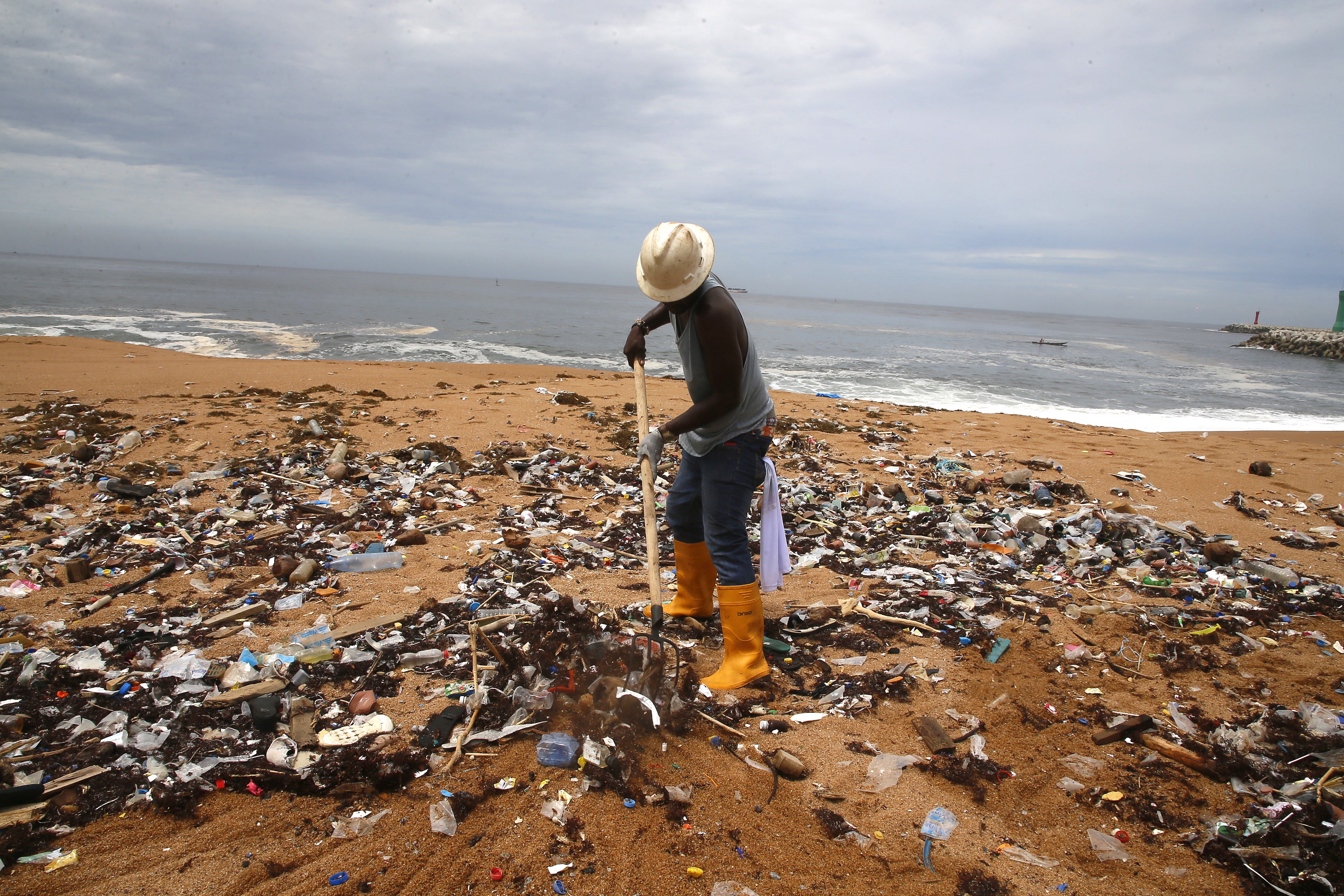Earth Day 2024: Everything to know about the annual celebration of our planet
This year’s theme is ‘Planet vs Plastics’, intending to draw attention to the threat posed by plastic pollution amid calls to stamp it out in the interests of sustainability
Your support helps us to tell the story
This election is still a dead heat, according to most polls. In a fight with such wafer-thin margins, we need reporters on the ground talking to the people Trump and Harris are courting. Your support allows us to keep sending journalists to the story.
The Independent is trusted by 27 million Americans from across the entire political spectrum every month. Unlike many other quality news outlets, we choose not to lock you out of our reporting and analysis with paywalls. But quality journalism must still be paid for.
Help us keep bring these critical stories to light. Your support makes all the difference.
Every year, Earth Day offers people around the world an opportunity to focus on our planet, its wellbeing and the many challenges facing it.
From industrial pollution and carbon emissions to the collapse in biodiversity and the climate crisis, there is no shortage of all-important issues to tackle.
The global environmental holiday, which takes place every 22 April, is marked by an estimated one billion people around the world, according to EarthDay.org, from schoolchildren to world leaders.
The occasion is intended to serve both as a reminder of the threats to our planet and a chance to appreciate the splendour the Earth has to offer.
Here’s everything you need to know about the day, its history and what is happening in 2024.
What is Earth Day about?
The annual day aims to draw attention to both the wonder and fragility of our natural world and to encourage public interest in environmental activism, particularly among the young.
“Earth Day is a reminder of the importance of environmental conservation and sustainability, encouraging us to come together and take action for a healthier planet and brighter future,” its official site states.
“Through various events, toolkits, and initiatives, we aim to raise awareness, inspire change, and foster a deeper connection with nature.”
Its organisers call for people of the world to unite to “to protect the Earth today and for generations to come” and to advocate for “a more sustainable world”.
What is the history of Earth Day?
The initial idea for the day came in response to a 1969 oil spill off the coast of Santa Barbara, California.
In response to that disaster, US senator Gaylord Nelson sought to inspire a popular movement in favour of the environment as strong as that then thriving in opposition to the Vietnam War.
His organising efforts, with the assistance of Harvard graduate student Denis Hayes, led to the first Earth Day in 1970 – which saw 20m people across the US participating – around 10 per cent of the country’s population at the time.
Within a year, US president Richard Nixon had created the Environmental Protection Agency – a new branch of the federal government. The first Earth Day also preceded a wave of environmental legislation passed in the US in the early 1970s, including the Clean Water Act, Clean Air Act and Endangered Species Act.

Earth Day became an international campaign in 1990, spreading to 141 countries and, by 2000, had reached nearly every corner of the globe, inspiring initiatives to encourage replanting to combat deforestation and sustainable farming practices to reduce the use of harmful chemicals in agriculture, among many others.
In recent years, the day has become something of a yearly milestone for the global environmental movement.
In 2016, the historic Paris climate agreement started gathering signatory countries on Earth Day, for example, the resulting international pact aiming to limit global warming to “well below” 2C above pre-industrial levels.
In recent years, the celebration has faced some criticism, however, notably from famed activist Greta Thunberg, who has accused it of providing corporations with an opportunity to engage in “greenwashing”, which is to say making overstated claims about their business’s environmental credentials without actually making positive changes.
“We all know greenwashing is happening and it is infuriating,” Earth Day president Kathleen Rogers told BBC News.
“It’s not an issue we’ve caused, but we know Earth Day is used cynically by some businesses to misuse the ethos of sustainability for their own gain.”
What is happening on Earth Day 2024?
Every year, Earth Day is given a theme and this year it is “Planet vs Plastics”, which is intended to draw attention to the impact plastic pollution has not just on the environment but on human health too.
The UN is expected to agree a landmark treaty on plastics later this year while more than 50 countries have called for an end to plastic pollution by 2040.
Earth Day’s organisers want to go further than that, however, and have called for a 60 per cent reduction in the production of all plastics by that same year.
They are encouraging participants to attend clean-up events in their local area and have provided a searchable map to enable budding activists to find events taking place nearby.

Join our commenting forum
Join thought-provoking conversations, follow other Independent readers and see their replies
Comments